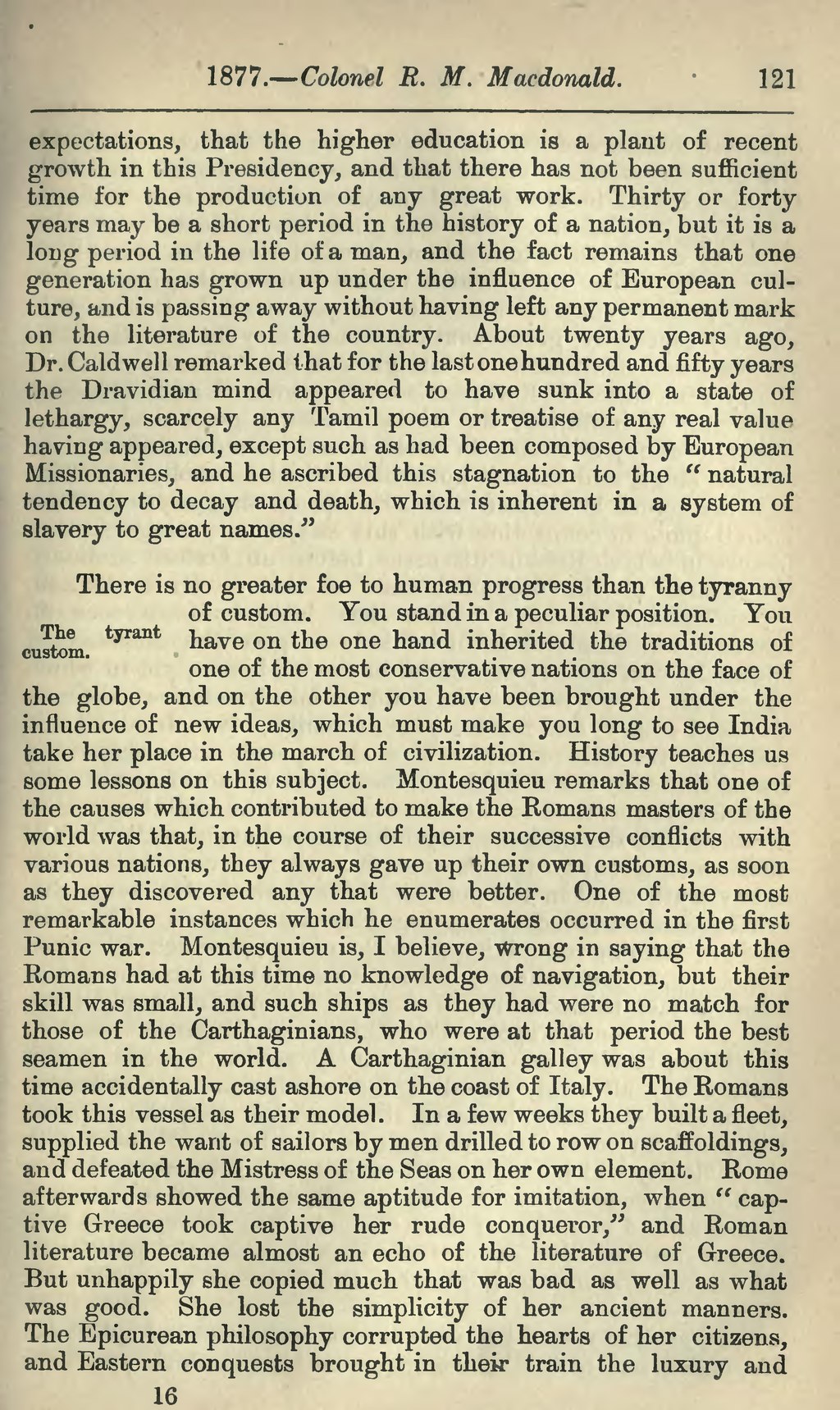expectations, that the higher education is a plant of recent growth in this Presidency, and that there has not been sufficient time for the production of any great work. Thirty or forty years may be a short period in the history of a nation, but it is a long period in the life of a man, and the fact remains that one generation has grown up under the influence of European culture, and is passing away without having left any permanent mark on the literature of the country. About twenty years ago. Dr. Caldwell remarked that for the last one hundred and fifty years the Dravidian mind appeared to have sunk into a state of lethargy, scarcely any Tamil poem or treatise of any real value having appeared, except such as had been composed by European Missionaries, and he ascribed this stagnation to the "natural tendency to decay and death, which is inherent in a system of slavery to great names."
There is no greater foe to human progress than the tyranny of custom. The tyrant custom. You stand in a peculiar position. You have on the one hand inherited the traditions of one of the most conservative nations on the face of the globe, and on the other you have been brought under the influence of new ideas, which must make you long to see India take her place in the march of civilization. History teaches us some lessons on this subject. Montesquieu remarks that one of the causes which contributed to make the Romans masters of the
world was that, in the course of their successive conflicts with various nations, they always gave up their own customs, as soon as they discovered any that were better. One of the most remarkable instances which he enumerates occurred in the first Punic war. Montesquieu is, I believe. Wrong in saying that the Romans had at this time no knowledge of navigation, but their skill was small, and such ships as they had were no match for those of the Carthaginians, who were at that period the best seamen in the world. A Carthaginian galley was about this time accidentally cast ashore on the coast of Italy. The Romans took this vessel as their model. In a few weeks they built a fleet, supplied the want of sailors by men drilled to row on scaffoldings, and defeated the Mistress of the Seas on her own element. Rome afterwards showed the same aptitude for imitation, when "captive Greece took captive her rude conqueror," and Roman literature became almost an echo of the literature of Greece. But unhappily she copied much that was bad as well as what was good. She lost the simplicity of her ancient manners. The Epicurean philosophy corrupted the hearts of her citizens, and Eastern conquests brought in their train the luxury and